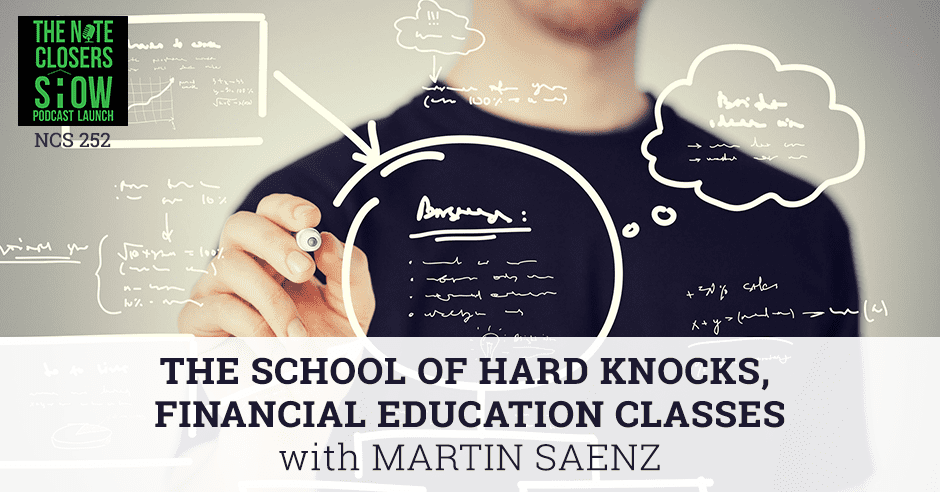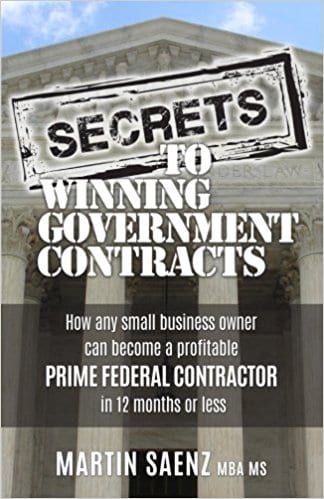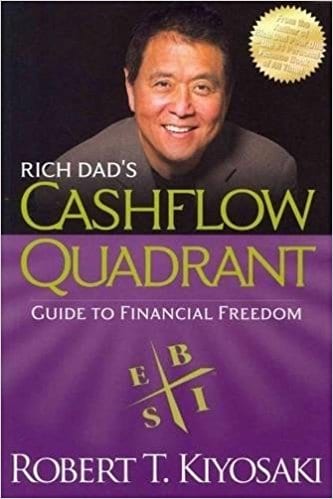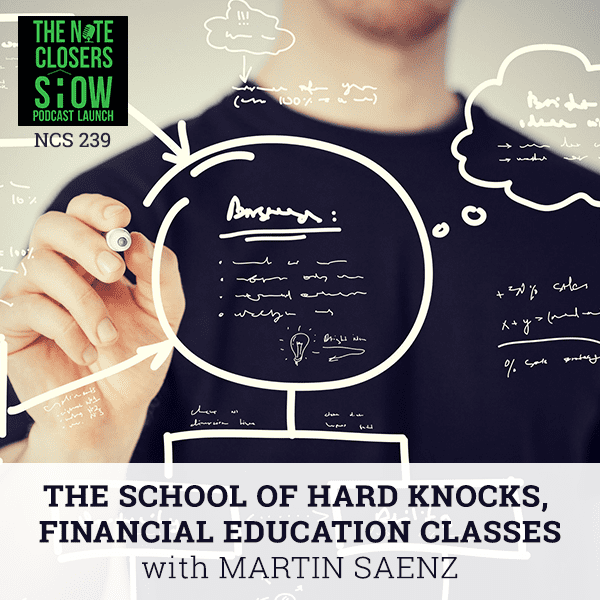
The note investing market is getting a little tighter and the competition is getting steeper. Martin Saenz encourages new note investors to take advantage of all the conferences and networking events to find hedge funds as well as putting in work like making phone calls and blasting emails to your database, all of which can lead to better opportunities. Matt’s key advice is to immerse yourself in training and workshops every chance you can get it. Financial education classes plays a big role in helping him formulate his long-term objectives, save money to fund his own business, and raise private capital.
—
Martin Saenz is a friend of mine and he is a guy that has done business with his own funds without raising private capital and has been very particular about what he invests with. He started off on the first side, bummed from trying to do it all himself, took some workshops, figured things out, and then dove into the second space. Along with buying seconds for himself, he’s also a very active investor in the Virginia market where he’s located around DC He buys a lot of industrial property and buys from rentals as well. Martin shares about how he hit the school of hard knocks to begin with and had a very expensive tuition to that college. Martin talks about how that expensive $80,000 to $100,000 tuition costs for him trying to do it all himself. Martin Saenz is also the author of Note Investing Made Easier. Martin’s got a big heart and that comes across in this episode.
Listen to the podcast here
The School of Hard Knocks, Financial Education Classes with Martin Saenz
We’re excited to be joined by our guest, Martin Saenz. How are you doing?
Scott, how are you?
I’m good. You’ve been running and being a very active real estate investor for how long now?
Since 2009.
You came in the same time I did, when all the crap was hitting the fan. Share with people a little about your background. What did you do before you became an active note and real estate investor?
In 2004, I got fired from my corporate job, which was a blessing in disguise because I was horrible at having a boss and doing the whole corporate thing. My wife and I said not to do that again, and we need to go in business for ourselves. We started a government contracting company out of the basement of our home in 2005. What we offered is design and fabrication services for museum exhibit displays and signage for the federal government. From that, I was always going to different seminars. Bill Bartmann, Robert Kiyosaki, I did all that. It took three years or four years of seminars and reading, and then jumped in and started becoming a landlord in 2009.We bought a commercial building where we operated our company out of. Then I bought the commercial building next to the commercial building, already picking up residential and other commercial properties along the way.
How did you evolve into the note game? Is it from learning from other seminars about it?
There’s something wrong with the residential landlord game. The commercial landlord game is on autopilot. Our issue was small business ownership and having a whole team of employees, having payroll, taxes, expenses, and overhead. We sold the company in 2013, because we started building a family. From that point, I was looking for something to do with my time. Landlording is good as a slow bill. You accumulate properties a correct way. You’re not going to be on the beach with a Ferrari in five years. I did NoteSchool’s three-day seminar when they came to town. I read about fifteen books on investing, and then I went out with $200,000 in my own money and started buying notes. The real learning took place with my $200,000 not beforehand.
Did you focus on firsts or seconds? What was your focus?
I started focusing on firsts. I bought ten first mortgages. I did half the due diligence that I do today. All ten mortgages were in Ohio so I went and drove through Ohio for ten days, looking at all the properties I felt I knew best. I don’t need a BPO, I got an eagle eye for real estate. I made out with some deed in lieu. I barely survived that purchase. One property I bought was in Shaker Heights in Cuyahoga County. Shaker Heights is a beautiful place, but it was a block away from abandoned buildings and spray paint and gangland. The property I thought was $80,000 turned out to be $25,000. I did a whole bunch of things halfway. Then I started buying seconds and focusing on the borrowers and loan modifications. That’s when it started to turn with me and I started to pick up momentum. In fairness to the first side, I don’t think that I gave it its proper due because I was only doing due diligence halfway and I wasn’t doing smart buys.
I see that all the time, like, “I know best. I don’t need a realtor.” A lot of that comes from the traditional real estate investment side where a lot of the gurus out there are, “You can do it yourself. You don’t need a realtor to take 3% of your commission.”A lot of people talk about realtors being lazy. I’m a big advocate of realtors because they can save me a lot of time and they could do the driving for ten days versus me. You’ve been buying active seconds for what, five, four, six years?
About four years. Because the book came out, I started doing some training. I wasn’t thinking of doing training when I wrote the book, but it started happening because people started reaching out to me. As I was doing more training, I backed down on purchasing NPNs. Last year, I picked up a bunch of re-performers that are easy to pick up and keep the cash flow moving.
With you first 200,you bought ten firsts. How many seconds have you bought over the last few years?
I’d say about 30.
Do you see that market being a little tighter with the way the market’s rebounding everything with values?
I got to update my book now because things are changing all the time. The inventory shrunk. A few years ago, there are seconds everywhere. The good firsts were a little harder to come by. There are always junk properties. Now, it’s advantageous to look at some firsts from a cash flow perspective, borrower’s profile, ability to mod, and those types of things.
We buy those seconds. Hedge funds, private sellers, who is your sourcing for those?
Almost all my sourcing has been peer relationships. If you look around and if you meet enough people and network, you’ll find people that just bought notes and never did anything with them sell them off, or they took down twenty notes and four are outside of the parameters so they’ll break you off a piece. I don’t ever buy from a point of desperation, or like “I have to deploy this capital.” I buy when the opportunity presents itself. I’m the same way with real estate as well.

Financial Education Classes: I don’t ever buy from a point of desperation. I buy when the opportunity presents itself.
We were talking about an eviction you had.
It was the residential property in my area. They started paying late, but that’s a lesson on me. They were paying late for a year and I was always feeling sorry. I was emotional and I want to help them. Then they leave a house full of junk and a car in the yard.
What would you advise people? You’ve done some firsts, messed up on the firsts, had success to the seconds, and you’ve seen the market change. What’s your biggest advice to somebody who’s looking to get into the note business and who’s brand new to the game?
You have to look at all notes. You have to look at what your objectives are. Some people like to reposition the property in and out, capital gains, and then other people are in for long-term cash flow because they want to deploy their capital. Whereas before I looked at seconds from just a cash flow perspective, now that inventory is a little tighter, look at firsts from a cash flow perspective and not limited to the peer relationships. You should be going to all the conferences and networking, finding hedge funds. You should be pounding the phone calls to local banks. You should be on LinkedIn connecting with people and players that can lead you to opportunities. It may have been a little easier a few years ago. Things are a little tighter but the opportunities are still out there, but you need to broaden your marketing.
Besides the workshops and LinkedIn, you’re also pretty active in BiggerPockets too.
I put a few posts out there. I enjoy it. I haven’t systematized that social media and digital marketing outreach like you have. I have four kids, five and under. I’m never going to be the richest guy in the room, that’s not what I want. I completely know the hustle that you put into it. It’s insane the amount of hours that you put in. I do everything. I’m at home at 4:00 PM for dinner, bath time, bedtime, 7:00 PM. I’ll do some work after. I have more freedom of time. I can do things when I want to do things, but I’m never going to be the richest, so I slow build.
I’m a big promoter of the “Notes are not a get rich quick” scheme. It’s to build value and build wealth long-term if you’re into it. The beautiful thing about notes is you can cut, whether you’re working full-time or you have a full-time family, you can carve out your schedule and your hours to help you have a win. Not to give up on the family life, to do the fun things that you want to do along with going out and building wealth and building cash flow. Having four kids, five and under, you’re a saint.
You can’t underestimate the level of training needed. I wish that I had formal training when I started. I didn’t go into the notes school program because I didn’t want to go into the group setting, but I had some money to deploy and everything else. I took the learning curve hits majorly. I took tens of thousands in learning curve buying retail. I get folks that skate around Facebook and social media, and they don’t receive the formal training. You have a formal training program, but people may just take a few webinars and think that they’re feeling frisky, and then they’d go out. Wherever you get the formal training, determine that that person knows what they’re doing and just receive it, because it’s going to save you. This money is so capital intensive. The training is just critical.
There are people out there that we’d like to call outliers. “I’m not going to spend any money on training. I’m not going to learn anything. I’ve got twenty years of history as a realtor, a mortgage broker or landlord.” The note game is so different than anything else because you’ve got so many different options. It is definitely a niche. It’s not the most popular thing on TV.
I had a real sweet lady and she came to me and she was like, “I can’t afford the training, but I’m buying a note in Maryland. Do I need a debt collections license?” I’m like, “You can’t afford the training but you’re going to buy a note in Maryland?” I don’t get the sense she knows what she’s doing. You can’t afford not to get it.
You also do some financial education classes on a regular basis too. Am I correct?

Financial Education Classes: Secrets To Winning Government Contracts
I’m doing the note training. I am doing starting financial education classes for free. I want to do that for adults and children that are physically and mentally challenged. I’m going to gear the course towards those individuals, and then I’m going to build that through an online presence of some kind. It’s in its early infancy stages, and it’s going to be done for free. In conjunction with the note training, I have a second book on a completely different topic called Secrets to Winning Government Contracts, because that’s what my wife did. We started in the basement of our home with several hundred thousand in debt, and then we built it into a multimillion dollar company, so we’re writing our story that way. I’m enjoying the training and helping, but you also understand all the mounds of work behind the training. The training is fun, but it’s all the secondary.
There’s a lot of stuff that goes into it but once you start to systemize it, it’s relatively easy. You get a group. It takes a lot of energy, but it sets up for so much more when you can give people education, give a little of your time, and your experience to help them save thousands of dollars. There’s a lot of goodness that goes into that when you do get letters back or emails from students that are saying, “Thank you for your helping me stop losing money. I should have gone to training and it would’ve saved me $20,000 in the long run and I would have come out on top.” That’s the biggest thing that we love to see. There are a lot of people out there teaching things that happened two or three years ago that haven’t bought anything recently, and that’s the unfortunate thing too. Let’s talk about some of those changes over the last twelve to 24 months. What’s one of the biggest changes you’ve seen?
It’s lack of inventory for the second space. Price increases especially on the second space. You always get tapes where there’s junk notes and you get tapes where there’s some good ones. You put it through your due diligence filter process, the outcomes are notes that fit your parameters and make you happy. That fundamental hasn’t changed, but just having to pound the pavement for more opportunity has changed. A lot of new note investors are coming on the scene and jacking up the prices. There’s probably at least half of the note investors I met in 2013 that aren’t around, so a lot of people are exiting the scene too. Companies are just trying to price where they can get money for.
A lot of people have different interests on different things. They alter what their focus is on. They bought some assets, they got cash flow coming in, and they’re enjoying travelling and what they’re doing, or they’re being more introverted about what they’re doing because they’ve developed some relationships with some sources that they’re not sharing, or they’re cashing out. There’s nothing wrong with that. What we do with notes, it feeds a lot of diverse relationships and diverse investments. You do some commercial real estate as well. Is that correct?
I buy industrial spaces. That’s a strategy for where I live. I live in Northern Virginia outside of DC. They’re building McMansions everywhere, $500,000 to $1 million homes, but they’re not zoning anymore for industrial spaces. Those are becoming more like gold. You pick them up and then you find a tenant in a week. I’ll find tenants before I even close on the transaction.
With the industrial space, what does your typical tenants look like?
You have two types of individuals. You have people that want to come in and learn the fundamentals. That’s what I wrote my book to be like, just what I do on a day-to-day basis, which is very mundane most of the day. You’re out there digging through collateral files, putting them all on your office floor and mashing them up, reading through documents, and doing calculations. That’s very critical to being a successful and the investor. Then you have others that want to bypass that process and go right into raising a fund or creating a fund or JV-ing and doing more of the pizzazz and branding. Both may be critical for your objective but you should never overlook that day-to-day function.
It can eat you up relatively fast because of things falling through the cracks, documents not getting filed in a timely fashion, tax foreclosures taking place. There are a lot of moving parts, that’s why it’s critical to be focused. We mentioned seeing people that have bought notes and then they have never done anything with those assets.
It makes you wonder about the thought process they took in buying those notes. They didn’t see the end picture, otherwise they would move towards that. It’s scary out there.
Are you using your own funds or are you using other people’s funds to take down deals?
I use my own funds. Since I started, on two occasions I’ve taken in some friend’s money on a very small scale. I had a friend who is a CPA. He bought a bunch of notes and then he was like, “I didn’t realize how much work this is.” I worked it out for him. For the most part, I’ve used my own funds.
Do you use your own funds for the industrial spaces too?
What I do with that is a lot of seller financing. I’ll find someone that will finance 80%. Someone who owns a space free and clear, they’ll finance 80%. I’ll put down 20%, so I’ll put down my own funds. The underlining question to all this is income. It ties back to income. I had to make that money somewhere. Are you putting the down payment for that 20%? Yes, through income. The asset is the end result of doing what you needed to do on the income front. Everything should be focused around the income, in my world at least. That’s the only thing I would put out as an add-on to that question.
It’s also important besides the income that you know how to read a balance sheet and know how to set that stuff up. Are there any suggestions on any books or stuff on balance sheets that you’d like to recommend anybody?

Financial Education Classes: Rich Dad’s CASHFLOW Quadrant: Rich Dad’s Guide to Financial Freedom
It’s good to start with Cashflow Quadrant, Rich Dad, just read his books. It’s very elementary how he breaks down the financial statements. Understanding the basics is not that hard. Buy assets that produce income, and income flows up from the asset column to the income column. Reduce expenses and reduce liabilities. Don’t make things complex and have systems for everything. I use XMind for mind mapping. The days of building a thousand-page operations manual to dictate what you do in your day-to-day operations is done. You can go into mind map and draw pretty pictures. They’d map out your day. That will be more impactful and help you with your remembering much more than operations manual. Have your goals, have your clear end insight, and then mind map out in a very simple fashion where you want to go. Even if learning financial statements is a bubble on the mind map, that would be helpful too. Put all your shortcomings and things you lack on that mind map in addition to what you’re an expert in and what your strengths are.
It’s one of the things that we try to do here, especially with the marketing side. Let’s map out where we got to go, what’s going to come back in, how’s this going to be affected by this, what do we have to do. It can be overwhelming at first, but if you walk through it and you start looking and seeing the chunk, the pieces take place, it flows together and makes things well. What made you decide to write a book?
I have something that comes to mind, “Don’t be Scott Carson.” Most people can’t be Scott Carson even if they want to be Scott Carson. You’ve worked insanely hard to build what you built. Anybody new in this space needs to done down their marketing plan where it’s just you and your telephone making phone calls to local banks. Make it so basic and so simple, that would help. You’re not going to build this mega masterful digital marketing your strategy.
That’s one of the things I tell people on our workshop. “You’re not going to compete against me, and there’s no reason to. Just start off.” Use your smartphone, use some of the simple tools, buffers, things like that and just post a little bit. When I started off ten years ago in the note industry, I just started and I knew that I was going be there long term. I built a little bit at a time. How do you eat an elephant? One bite at a time.
In the note space, you’re not going to survive unless you can pick up the phone and call borrowers and just make all that outreach which is critical. Call attorneys, everyone wants to email and text and all that, even borrowers, but the art of the phone is you get so much insight when you just pick up the phone and call somebody.
The book is called Note Investing Made Easier.
I break down things. It’s just the systems that I put in place for myself. I focused on four phases for my business model. The first is sourcing. All the things you need to do from a branding profile perspective so that you look the part of a note investor before you are an actual note investor, all the various ways that you need to have connectivity with all your peers and sellers. Then I go into due diligence. I have a three-round due diligence process. The first round focuses on the property, the second round focuses on the bar, and then the third round rolls it up into the ROI spreadsheet. Then I go into a next phase which is the bar workouts, because I do my own workouts in states that I’m allowed to. Then I have portfolio management where I monitor returns on all my accounts.
I have rituals set in place. It helped me work on each phase throughout the day. I wake up very early. I wake up at 4:00 AM. I go and write down my goals at the bathroom sink. I read a few pages out of the Bible to keep my mind right, and then I go look at all my accounts. All the bank accounts, all the expense, and I get a sense from my P&L for the day. People think it’s weird, but it keeps my focus on money, not in a very greedy and selfish way, but in a way of saying I got to mind my business and keep focused on what’s important. That helps when you got to focus on your income. That’s your money. There’s no money coming into your house. Nobody’s going to give you anything. You got to prove your worth by picking up the phone and making some dialing for dollars. If you’re not going to do your due diligence correctly, don’t bother being in the game.

Financial Education Classes: I have rituals set in place. It helped me work on each phase throughout the day.
Borrower workouts is when you’re getting your return that you sought out when you did due diligence. Most people lose sight when it comes to the doing. That’s where it’s hard for a lot of folks.
They suffer from paralysis analysis, and instead of going out and making a phone call and asking for help, they just sit down. They don’t take that step forward. I talked to people and I’m like, “I’ve got a deal that has been dragging on for six months. It’s vacant.” Will we be changing the locks? No. Do you know what the interior looks like in the property? No. Do you have current photos? No. I’m like, “What are you doing?”
You’re a man of action. You’re thinking like a doer of things. You’re in do-mode. That’s important for the people that you help bring up to speed. All your students and all the training you do help them be doers as much as the technical expertise. That’s where a lot of people get stuck in the analysis, because they’re getting stuck in the academics of it, because they’re avoiding the doing of it. The more as a trainer, the more you can help people move into the fray.
Talk about some of your workshops. You teach those regularly as well, right? Let’s talk about what it’s focused on, where you have and where they can find more information?
I have a website, 2CFNow.com. I have an online education class that mirrors a two-day dedicated video conference workshop. They’re one in the same, however the dedicated one is me in person spending two days and going through everything. What I like about that is that I can delve into someone’s situation and help them. Are they someone with $500,000 in their purse and they just want to deploy the money in a very good return, or are they selling that needs to put in the hustle to become an expert and then loop in the passive money on the back end? It’s figuring out that strategy and mapping out both for them. It’s more money when you get someone live has done it, but I always think and wish I knew myself when I first started. You spent $2,000 for training; I know I went through about $70,000. Just imagine the money I could’ve saved along the way in various ways just starting with buying retail.
What’s been the biggest surprise since you’ve written the book?
I’ve worked at a Starbucks for a number of years since I sold the company. I used to have a whole team of people and I was at the center, and they would orbit around me until my head’s wanting to explode, because I didn’t want to be around people and clients. We did an exhibit work for Pentagon. We have a long-term contract there that is still in place with the company. The Secretary of the Navy, The Commandant of the Marine Corps, Secretary of Defense, we did a project for General Colin Powell. We’ve done all these high-profile jobs. It sounds great, but the amount is very taxing. The amount of profession evolves and the neediness. When we sold that in 2013, I went and hibernated at Starbucks for about four years with my headset on. You would think I was homeless if you walk by me. I was just buying notes. I was living in a cave and I was plugging away making some friends on Facebook with Bill McCafferty, Fred Moskowitz, and all these guys.
Then I felt a spiritual calling to write the book and share my story. “It’s time. I know a few things. I’m far from knowing everything, but I know a few things,” so I put it down on paper. I started writing in January 2017,finished,and it will be published in May of 2018. Immediately, it has just been selling and people are emailing me and reaching out. It’s good and bad, because you get a lot of half steppers. I love everyone to have success, but there’s so many people that are half stepping. They want to see what they can get for free and they just want to pluck at you. I’m very conscientious of my time. I map out my day-to-day prior, every day, to the minute. Then I get some people that are die-hard serious. They’re committed and they have money. Those are the people that I actually sign on and be my students. I’m blessed for that, and I try to give them everything I have.
We’re excited to have you on because I know you’ve got a big heart and we know each other the last few years from different events. You and your wife are just big-hearted people. You want people to succeed. The reason we started teaching is because what we are doing now didn’t exist ten years ago. It’s a niche within a niche of aspect of things. I want to say thank you for joining us on here. I know you’ve got a busy day. Your book is on Amazon, Note Investing Made Easier. Thank you so much. Have a great day and we’ll see you at the top.
Important Links
- Martin Saenz
- Note Investing Made Easier
- NoteSchool
- BiggerPockets
- Secrets to Winning Government Contracts
- Cashflow Quadrant
- Rich Dad
- XMind
- 2CFNow.com

